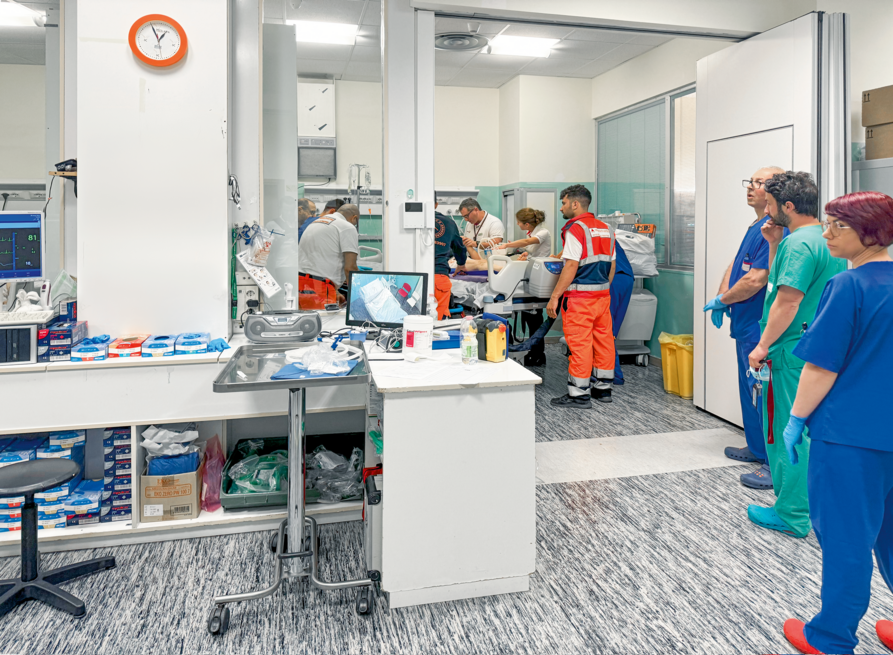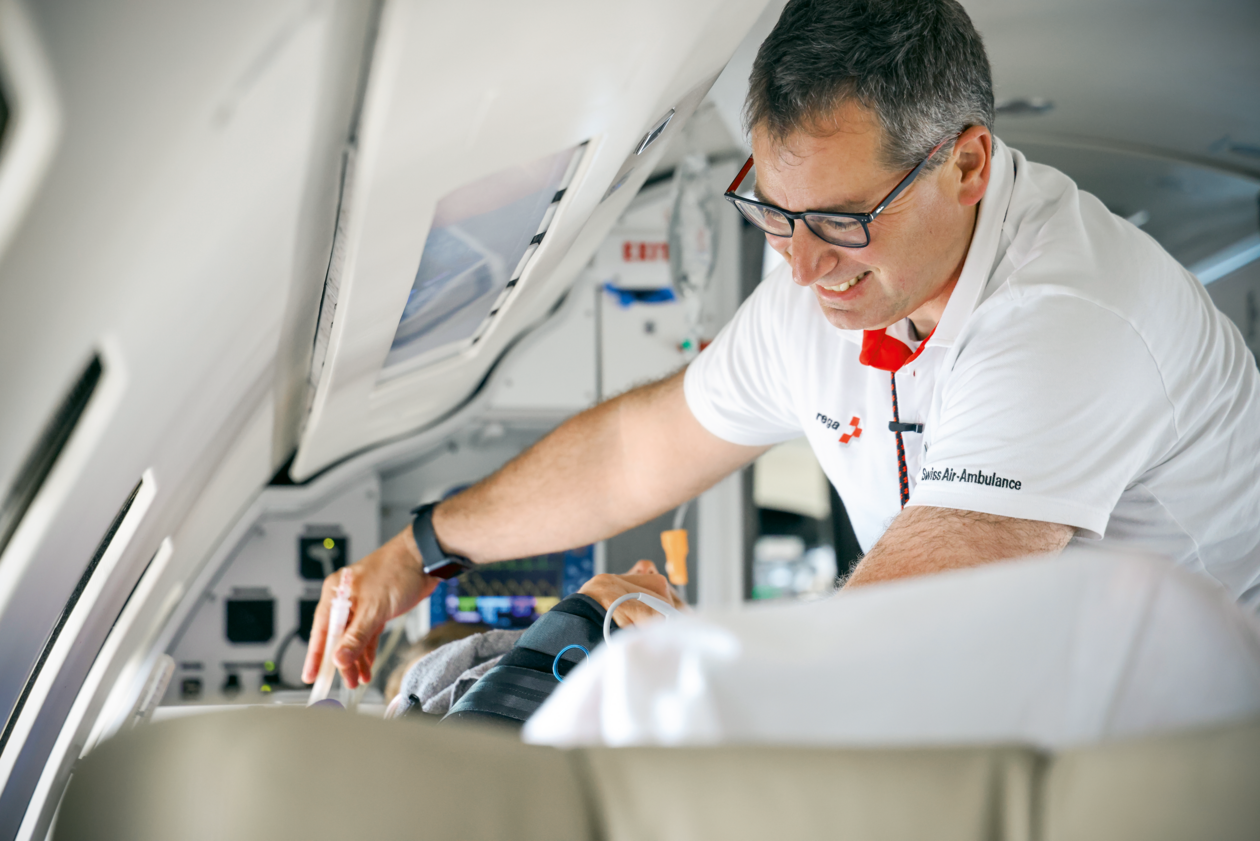“The first thing I noticed was all the tubes around me.”
Frank Lüem
“We’d regularly been going off on motorbike trips in a large group for many years. This year, there were 10 of us on a tour in southern Italy. On the day of the accident, shortly after midday, we were no longer far from our hotel. Earlier it had been raining lightly, but now the road was drying. I can’t remember the accident any more. There are only pictures of the scene of the accident and speculation about what happened. The marks on my helmet and motorcycle gear indicate that I evidently skidded across the tarmac before crashing into the edge of a stone wall on the other side of the road with the upper right side of my body.
I woke up in the windowless intensive care unit in hospital. The first thing I noticed was all the tubes around me. The medical staff had, for example, inserted a central venous catheter into a vein in order to administer the necessary drugs. Fortunately, three fellow motorbike riders, including one of my best friends, had accompanied me in the ambulance that took me to hospital. He was allowed to visit me in the intensive care unit even though this was not really permitted. The visiting times were very short and my time in hospital was limited to waiting, lying in bed and sleeping. Communication was also a problem – many conversations with the doctors were held using a translation app on a mobile phone.
As soon as I got my own mobile phone back, I was able to telephone my wife in Switzerland, even though that was actually also against the rules. They presumably turned a blind eye here, too. My wife had already been informed by my friend about what had happened and I also knew that she had already contacted Rega. After that, I was always kept well informed about how the planning of my repatriation was progressing. It was a huge relief when the Rega crew were finally standing at the foot of my hospital bed. I felt really well looked after; the transport was very comfortable and I was virtually pain-free.
When you go travelling, you always expect it to be a positive experience. You don’t plan in advance for something as drastic as this to happen. I’m extremely grateful and glad that everything went so professionally and smoothly.”


